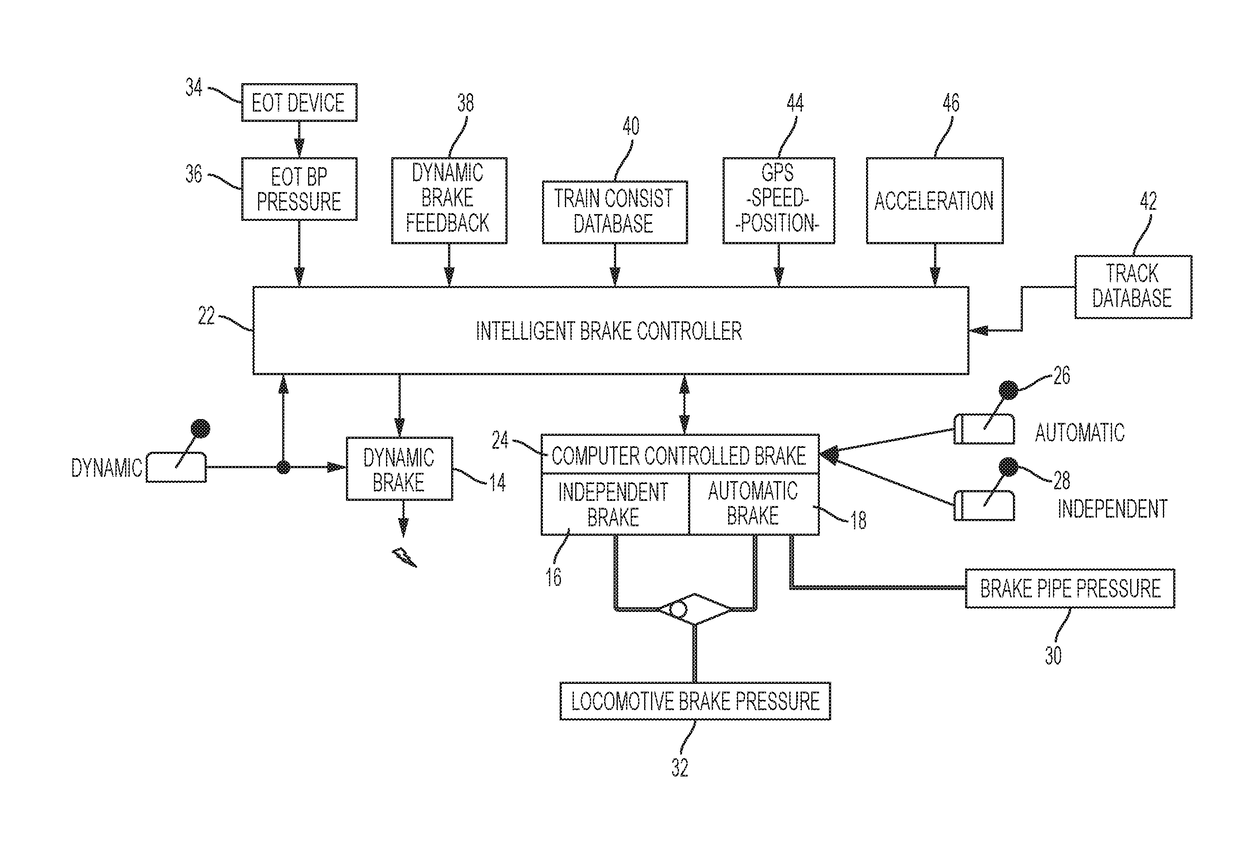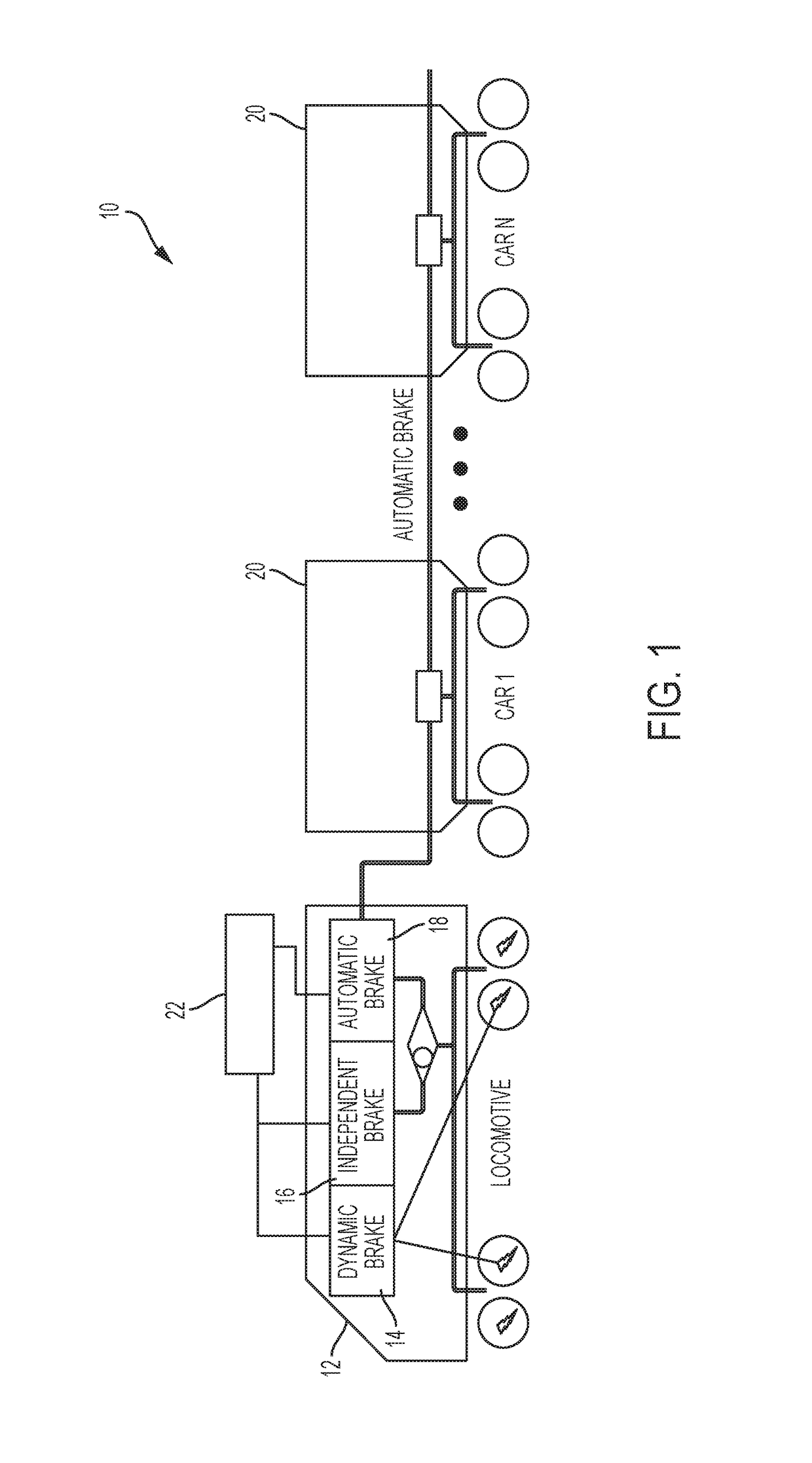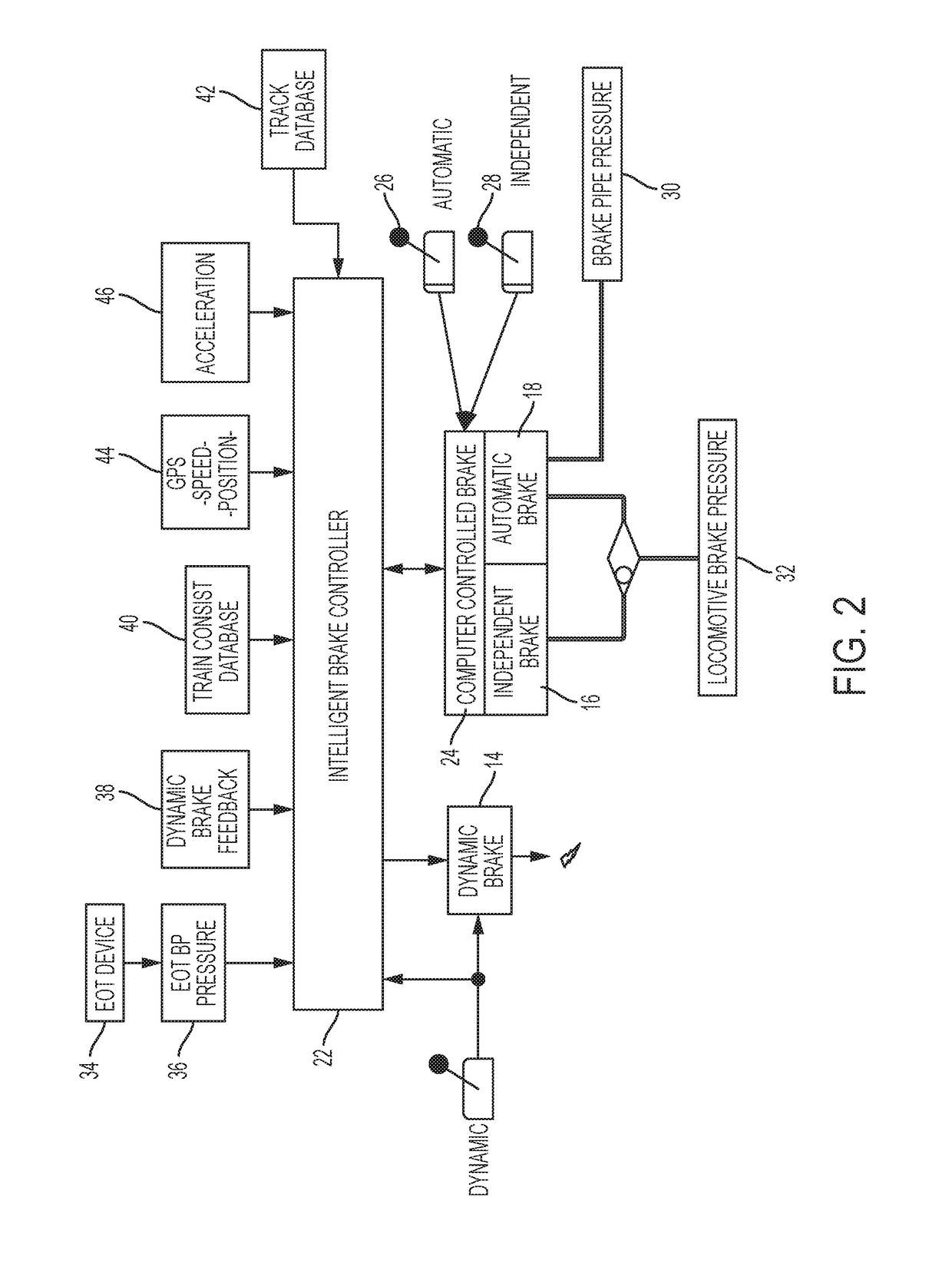Intelligent locomotive brake control system
a technology of intelligent brake control and locomotive, applied in the direction of braking system, braking components, transportation and packaging, etc., can solve the problems of complicated brake selection process, and inability to quickly on and off cycle the automatic brak
- Summary
- Abstract
- Description
- Claims
- Application Information
AI Technical Summary
Benefits of technology
Problems solved by technology
Method used
Image
Examples
Embodiment Construction
[0021]Referring to the figures, wherein like numerals refer to like parts throughout, there is seen in FIG. 1 an intelligent brake control system 10 for a locomotive 12 that interfaces with the existing dynamic brake 14 and independent brake 16 of the locomotive as well as the automatic brake 18 that applies the brakes of one or more rail cars 20 being pulled by the locomotive 12. System 10 may be configured as a standalone system, integrated into computer controller brake of a locomotive, or located in the energy management system (or a combination thereof).
[0022]Referring to FIG. 2, system 10 comprises a main controller 22 that is in communication with or part of the computer controlled brake 24 of a locomotive. The computer controlled brake 24 is the locomotive equipment used to respond to train driver inputs by executing or commanding the brake settings as selected by the train driver, such as the CCB II® computer controlled brake available from New York Air Brake, LLC of Watert...
PUM
 Login to View More
Login to View More Abstract
Description
Claims
Application Information
 Login to View More
Login to View More - R&D
- Intellectual Property
- Life Sciences
- Materials
- Tech Scout
- Unparalleled Data Quality
- Higher Quality Content
- 60% Fewer Hallucinations
Browse by: Latest US Patents, China's latest patents, Technical Efficacy Thesaurus, Application Domain, Technology Topic, Popular Technical Reports.
© 2025 PatSnap. All rights reserved.Legal|Privacy policy|Modern Slavery Act Transparency Statement|Sitemap|About US| Contact US: help@patsnap.com



